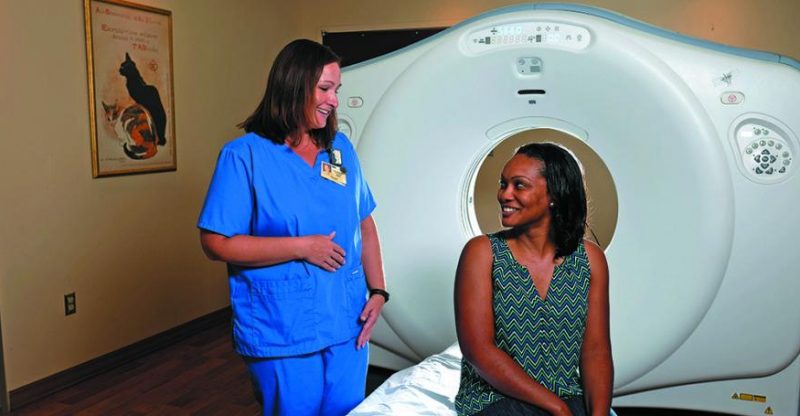Magnetic resonance imaging- New Jersey and others
Radiologists employ MRI scans (MRI) as diagnostic imaging to create images of the body’s architecture and metabolic functions. Powerful electromagnetic forces, strong magnetic variations, and radio waves are used in MRI scanners to provide pictures of the body’s organs. MRI differs from CT and PET scans in that it does not utilize X-rays or ionizing radiation.
Nuclear NMR has several medical uses, including MRI. NMR can also be utilized for imagery in those other NMR applications, like Spectroscopic methods.
We recognize that selecting a diagnosis facility is a crucial choice, and our diagnostic center in Hunterdon County, NJ takes great pleasure in offering exceptional patient care, tried-and-true techniques, and cutting-edge medical equipment. We have the most up-to-date, comfortable equipment in our facilities, and we’re always updating it to reflect advancements in imaging technology.
Patients must maintain full stillness during specific radiological exams or procedures to get precise and clear images. For patients who find lying in certain postures for extended periods uncomfortable or anxious, or who experience pain, Imaging Care Facilities provides sedative radiography in New Jersey to help them feel more at ease and comfortable. This is where sedation MRI in New Jersey comes into the picture.
Our major priorities are your comfort and happiness. To provide very important imaging solutions both to our customers and the physicians we represent, ImageCare Centers is always investing in both people and technology. Our locations and processes have been developed to better serve you because we understand how valuable your time is. We provide findings that are available quickly, same-day and next-day appointments, flexible hours, and radiologists who are accessible for telephone conversations with referring doctors.
What to Expect During Anesthesia for an MRI:
- Who might undergo anesthesia during an MRI? – Anesthesia may be used during an MRI for patients who may have specific disorders that make it difficult for them to remain still in the scanner, including claustrophobia, nervousness, or physical pain condition.
- Which anesthetic is applied during an MRI?-Although general anesthesia is occasionally used, most MRIs performed under anesthesia are done so while being sedated. Between being calm and being extremely drowsy, but not completely senseless, is sedation.
- How lengthy does a sedation-induced MRI take?-According to the part of the body being examined, MRIs take a variety of times. At least 30 minutes will be added, and frequently more. It takes almost eighty min to complete the MRI scan. For a timing estimate for your specific operation, consult your care team. After receiving anesthesia, you will be required to spend one to two hours recovering in the PACU.








